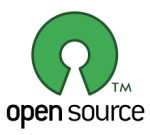Free Open Source Software in the Public Sector

This would mean replacing things like Microsoft Word with something like OpenOffice Writer.
For almost every piece of software in common use in the public sector, there is a free alternative. Imagine how much money could be saved by replacing paid-for software with free Open Source alternatives. For every PC in the public sector, about £200 could be saved by replacing Windows with Linux and Office with OpenOffice. Considering how many public sector workers have a PC, and that there are 6 million workers in the public sector, there's some serious savings to be made.
Free, Open Source software is widely used - last time I checked the figures, it was estimated that around half the world's websites run on OSS - including this one. If I used paid-for commercial alternatives, I would be bankrupt by now.
So I guess you'd expect me to be an enthusiastic supporter of Open Source software in the public sector, right? Yes - but with a few small reservations.
First, the 'yes' part of the equation.
I have little doubt that widespread use of Open Source software would bring some massive savings. Additionally, Open Source software often performs better than commercial offerings, and as a result it will usually run much faster on the same, or older hardware. This means that IT departments could keep the same old computers for much longer, reducing upgrade costs for years to come. Local authorities regularly throw away machines far more powerful than the Linux machine I use as a development PC, file server, database server, and all-round workhorse. (It's an 800Mhz Pentium / 384Mb RAM, for the interested).

Open Office Writer
OpenOffice is also perfect for a gradual transition from all-paid-for software to all-free software, as it has versions that run on both Windows and Linux.
What about replacing Windows with Linux? Things get a little more complicated here. Once fully installed and configured, a Linux system can look and work very much like Windows, whilst benefiting from the superior performance and security that Linux brings. But you do need some expertise in Linux to get to that point, and it's possible that many public sector IT workers don't have that experience. So there could be some training involved, and that costs money. In an ideal world, public sector IT would be filled with people who have a genuine enthusiasm for IT and therefore naturally found themselves drawn into Linux thanks to their outside hobbies. But we don't live in an ideal world, and the public sector can kill the enthusiasm of even the most ardent geek at the best of times.
There is also the issue of hardware compatibility. It's much less of a problem than it used to be, but there are still some PC components and printers etc. that just won't play nicely with Linux. So there could be some costs involved in replacing uncooperative hardware.
All that said, I still believe that the public sector would still be facing a huge net financial gain in adopting Open Source.
Now for some of my reservations.
If everything went reasonably well, local government would save a huge amount of money on this stuff. The effect on the private sector is difficult for me to guess, though. Certainly some companies who provide hardware or sell software will lose some money. But bear in mind that most of the professional software currently in use is from the USA, so it might not have a huge impact on the UK.
All that Open Source software would need some professional support to keep the public sector top brass happily insulated from risk, and the public sector could turn to the private sector for that commercial level of insurance. Red Hat have made an industry out of doing just that, after all. Personally, I prefer the Debian flavour of Linux - its software packaging and installation system is much easier to use. Maybe it would require less support as a result.
It's also the version of Linux that the popular Ubuntu Linux is based on, though personally I'm not convinced that Ubuntu's sudo-only security method makes much sense in a real office environment.
There's also the issue of workers getting used to new software. OSS has come a long way in recent years and I reckon most people wouldn't have too much trouble getting to grips with most OS software equivalents. There are always some commercial software packages that would have to remain in service, and some workers would not be able to move from Windows to Linux, for various reasons. Some software has no equal in the OSS world, or the equivalent is impractical thanks to the commericial vendors having locked down the market in some way.




